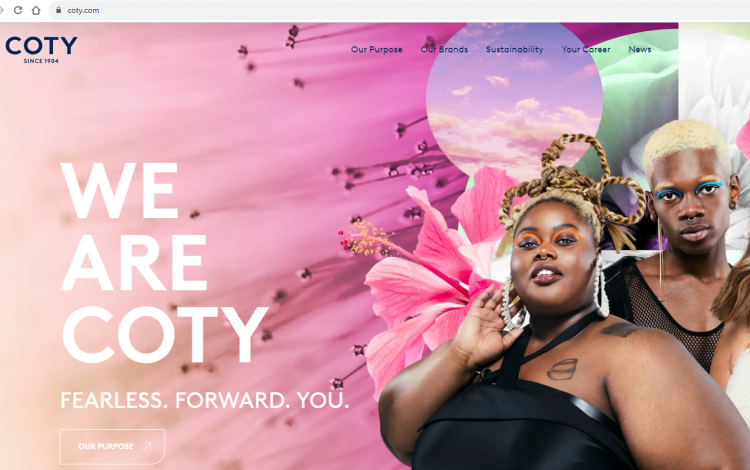U.S. cosmetics giant COTY, a leading name in makeup, skincare, and fragrances, is navigating ongoing structural changes.
Business Times learned that there's been a legal representative change at COTY (China) Investment Co., Ltd. Chen Min, who took the position in May, has stepped down and is succeeded by Chen Liyi.
A statement from COTY to Business Times relayed, "From July 20, Ms. Chen Liyi, Executive Vice President of COTY Asia-Pacific region, has temporarily taken charge of COTY China's operations. The former General Manager, Mr. Chen Min, left the company following mutual discussions. We're deeply appreciative of Mr. Chen Min's significant contributions to COTY China in such a short span."
Both Chen Liyi and the departed Chen Min have considerable experience in the beauty industry. Before joining COTY, Chen Min held positions at L'Oréal China and played a pivotal role in channel development when the brand Xiaolike entered the Chinese market. Chen Liyi, on the other hand, previously served as Deputy General Manager for Unilever's skincare division in China and Northeast Asia.
Promotion of local talent to international corporate management often symbolizes a company's focus and delegation of power to regional markets. But given COTY's current situation, organizational shifts and company direction remain in flux, with sudden regional management changes being just a part of the story.
Over the first half of 2023, COTY's headquarters underwent several personnel shifts. The board welcomed newcomers, a new Chief Business Officer was appointed for the luxury beauty department to fortify COTY's premium perfume standing, fast-track luxury makeup innovations, and foster skincare growth in the Asian market.
Additionally, COTY announced plans to explore a dual-listing on the Paris Stock Exchange to amplify its influence in Europe and attract fresh investors.
Luxury skincare and the Chinese market have repeatedly been spotlighted as COTY's developmental focal points.
In its Q3 financial statement, COTY highlighted the release of luxury skincare brand Lan Jia Si Ting in the Chinese market and travel retail as a strategic move. Another luxury brand, Orveda, is set to debut its flagship store in China in the latter half of 2023 following its unveiling at the Hainan Expo.
Notably, COTY's CEO, Sue Y. Nabi, is the founder of Orveda. Nabi, who stepped in as CEO during a 2020 crisis, successfully turned around the company's sagging sales and debt burdens. Consequently, in mid-May, COTY renewed its contract with Nabi.
In 2022, Nabi expressed ambitions to double skincare revenue by 2025, aiming to achieve between $500 million to $600 million. Potential growth in mainland China and Hainan's duty-free market were underscored.
But COTY's expansion hinges on a stable cash flow. According to its Q3 2023 report, the company earned $1.289 billion in revenue, a 9% YoY increase, with net profits rising from $49 million the previous year to $100 million. However, its free cash flow declined, falling from -$20 million to -$180 million.
COTY is currently raising funds through stock sales and bond issuance.
In July, COTY declared the sale of 3.6% of its Wella Company shares to investment firm IGF Wealth Management for $150 million. COTY retains 22.3% of Wella shares, valuing the company around $900 million. This sale pushes COTY closer to its de-leveraging goals, including tripling its leverage ratio by the fiscal year 2025.
Following that announcement, COTY disclosed the issuance of secured notes due 2030, with an interest rate of 6.625%, expecting to generate a total return of $750 million from the issuance.





